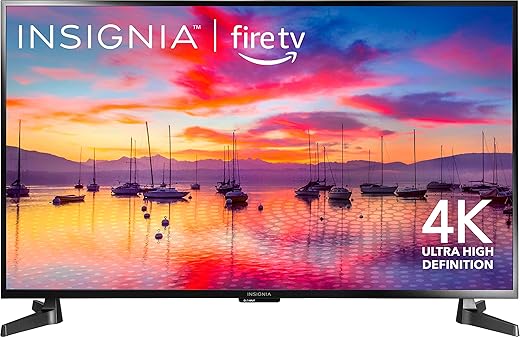
This step-by-step guide on “How to Clean a Smart 4K TV Screen” offers practical solutions for maintaining your television’s clarity and performance. By outlining safe and effective cleaning techniques, the guide addresses common issues such as dust, fingerprints, and smudges that can hinder your viewing experience. With clear instructions and recommended cleaning materials, readers will learn how to care for their screens without causing damage, ultimately enhancing picture quality and extending the lifespan of their Smart 4K TV.


Gather Your Cleaning Supplies
- Collect essential cleaning materials: a microfiber cloth, distilled water, and a spray bottle.
- Mix equal parts distilled water and white vinegar in the spray bottle for tackling tougher stains.
- Ensure the microfiber cloth is clean and free from dirt before starting your cleaning process.
- Keep all supplies within easy reach to streamline your cleaning routine.



Turn Off and Unplug the TV
Turn off your Smart 4K TV by using the power button or remote control. Unplug the TV from the wall outlet to ensure that it is completely powered off. This step is crucial for your safety, as it prevents any accidental electrical shocks during cleaning. Additionally, unplugging the TV helps avoid any potential damage to the device from static electricity or cleaning products.
Dust the Screen Gently
Use a dry microfiber cloth for cleaning the screen. Gently wipe the surface to remove any dust or debris. Employ soft, circular motions to avoid scratching the screen. Ensure that you apply light pressure while cleaning for the best results.
Prepare the Cleaning Solution
- Gather a clean spray bottle for mixing the solution.
- Measure equal parts of distilled water and white vinegar.
- Pour the distilled water and white vinegar into the spray bottle.
- Secure the lid tightly and shake the bottle gently to ensure the solution is well-mixed.
- Label the spray bottle if desired, to easily identify the cleaning solution later.
Spray the Cloth, Not the Screen
Spray the cleaning solution directly onto the microfiber cloth instead of the screen. This prevents excess moisture from dripping into the TV’s internal components. For example, if you’re using a glass cleaner, apply a few spritzes onto the cloth, then gently wipe the screen in a circular motion. Ensure the cloth is damp but not soaked, as this minimizes the risk of damage to the electronics behind the display.
Wipe the Screen
Dampen a soft, lint-free cloth with water. Gently wipe the screen using circular motions, starting at the top edge and moving downwards. This technique helps to distribute moisture evenly and prevents streaking. For example, if you encounter a smudge, focus on that area using small, circular movements to lift the grime effectively.
Use a Dry Cloth for Finishing Touch
Buff the screen gently with a dry microfiber cloth after cleaning it with the damp cloth. Focus on areas where moisture or streaks may remain, ensuring you cover the entire surface. Use circular motions for an even finish, applying light pressure to avoid damaging the screen. Check for any missed spots and repeat as necessary until the screen is clear and shiny.
Clean the TV Frame and Base
Wipe the TV frame and base with a slightly damp cloth. Ensure the cloth is not dripping wet to prevent excess moisture from seeping into the electronics. Pay attention to corners and crevices where dust may accumulate. Use gentle pressure to avoid scratching the surface while removing any dirt or fingerprints.
Allow the TV to Dry
Ensure the Smart 4K TV screen is completely dry before plugging it back in and turning it on. Check for any visible moisture on the surface and allow it to air dry for at least a couple of hours. If possible, place the TV in a well-ventilated area to speed up the drying process. Avoid using a hairdryer or any other heat source, as this can damage the screen.
Final Tips for Maintenance
In conclusion, keeping your Smart 4K TV screen clean is crucial for preserving both its picture quality and longevity. By adhering to the recommended cleaning methods and materials, I can enjoy a clearer and more vibrant viewing experience. Regular maintenance not only enhances my enjoyment but also contributes to the overall health of the device.
Essential Supplies Needed

Effective Cleaning Methods
Mastering Your Smart 4K TV: A Step-by-Step Guide to Setup and Navigation
- Set Up Your TV: Start by connecting your Smart 4K TV to a power source and your internet. Follow the on-screen instructions to connect to Wi-Fi and complete the initial setup
- Explore the Home Screen: Familiarize yourself with the home screen interface. This usually includes apps for streaming services, settings, and any other features your TV offers
- Download Apps: Access the app store on your Smart TV to download your favorite streaming services like Netflix, Hulu, or Prime Video. Make sure to log in to your accounts
- Adjust Picture and Sound Settings: Navigate to the settings menu to customize the picture and sound quality according to your preferences. You can adjust brightness, contrast, and audio settings
- Use Voice Control: If your Smart TV supports voice control, try using voice commands to search for shows, change channels, or control other features, making navigation easier
Common Questions About Smart 4K TVs
A Smart 4K TV is a television that not only supports 4K resolution but also has built-in internet connectivity and a user interface that allows access to various streaming services, apps, and online content. This means I can stream movies and shows directly from platforms like Netflix, Hulu, or YouTube without needing an external device.
In contrast, a regular 4K TV supports the higher resolution of 3840 x 2160 pixels but does not have smart features. To access online content on a regular 4K TV, I would need to connect an external device, such as a streaming box, a game console, or a Blu-ray player with smart capabilities. Essentially, the key difference lies in the Smart TV’s ability to connect to the internet and run applications, making it more versatile for streaming and online viewing.
Common operating systems found in Smart 4K TVs include Android TV, Tizen OS (used by Samsung), webOS (used by LG), Roku TV, and Fire OS (used by Amazon Fire TVs). Each of these operating systems offers unique features and access to various streaming services and apps.
The average lifespan of a Smart 4K TV typically ranges from 5 to 10 years, depending on factors such as usage, brand quality, and maintenance. Higher-end models may last longer, while budget options might have a shorter lifespan. Regularly updating software and ensuring proper ventilation can help extend the life of the TV.
The resolution of a Smart 4K TV significantly impacts picture quality by determining the level of detail and clarity in the images displayed. A 4K TV has a resolution of 3840 x 2160 pixels, which is four times the number of pixels found in Full HD (1920 x 1080 pixels). This increased pixel density allows for finer details and sharper images, especially on larger screens where lower resolutions may appear pixelated.
Additionally, higher resolution can enhance the viewing experience by providing more depth and realism, making it easier to see subtle textures and details in the content. However, to fully appreciate the benefits of 4K resolution, I need to ensure that I am watching content that is specifically produced in 4K quality, as lower resolution content will not benefit as much from the TV’s capabilities. Overall, the resolution plays a crucial role in delivering a more immersive and enjoyable viewing experience.
To set up and connect a Smart 4K TV to the internet, I follow these steps:
- Power on the TV: I plug in the TV and turn it on using the remote control.
- Access the Settings Menu: I press the “Home” button on the remote and navigate to the “Settings” option, usually represented by a gear icon.
- Select Network Settings: In the settings menu, I look for “Network” or “Network Settings” and select it.
- Choose the Connection Type: I can either select “Wi-Fi” for a wireless connection or “Wired” for a wired connection using an Ethernet cable. If I choose Wi-Fi, I need to make sure my router is on and the signal is strong.
- Connect to Wi-Fi (if applicable): If connecting wirelessly, I select my Wi-Fi network from the list that appears and enter the Wi-Fi password when prompted.
- Test the Connection: Once connected, I follow any prompts to test the internet connection to ensure it’s working properly.
- Update Software (if necessary): I may also check for any software updates to ensure my TV has the latest features and security updates.
Once these steps are completed, my Smart 4K TV should be successfully connected to the internet, allowing me to access streaming services and other online features.







This method really helped me. I followed every step, and my TV looks brand new! I even showed it off to my friends. It’s amazing what a little cleaning can do!
Awesome to hear you had such great results! Nothing beats that feeling of a clean screen. Thanks for sharing your success!
For those with kids or pets, I recommend cleaning more frequently. My little ones are notorious for leaving fingerprints. Anyone else have challenges with kids and screens?
Totally relate! Kids can turn any clean space into a mess in seconds. Regular cleaning is a must with little ones around. Thanks for sharing!
I wish there was a section on cleaning smart remotes too! They get super grimy. Anyone have tips for that? I usually just use some disinfectant wipes.
Great point! Remotes can get dirty fast. I’ll consider adding a section about cleaning them in the future. Disinfectant wipes are a solid choice!
I also found that using a squeegee-like tool can help for larger screens, especially when doing the frames. Just be gentle! Anyone tried that?
Interesting idea! A squeegee could be a good tool if used carefully. I appreciate your tip, and I’ll keep that in mind for future guides!
Thanks for the feedback! Glad to hear the microfiber cloth worked for you. I’ll definitely consider including maintenance frequency in future articles. Keeping a balance is key!
Great guide! I always struggle with the screen smudges. I used a microfiber cloth from my eyeglasses kit and it worked wonders! Have you thought about including tips on how often we should clean our TVs? I feel like I do it too much sometimes.
I tried using a commercial screen cleaner once, but it left streaks everywhere. Now I stick to the DIY vinegar and water solution, which works great. Anyone else had bad experiences with commercial cleaners?
I didn’t realize I had to unplug the TV before cleaning. I’ve always just turned it off. Is that really necessary? What if I only wipe the frame?
Unplugging is just a safety precaution. It’s not mandatory for the frame, but better safe than sorry! Glad you’re looking out for your TV!